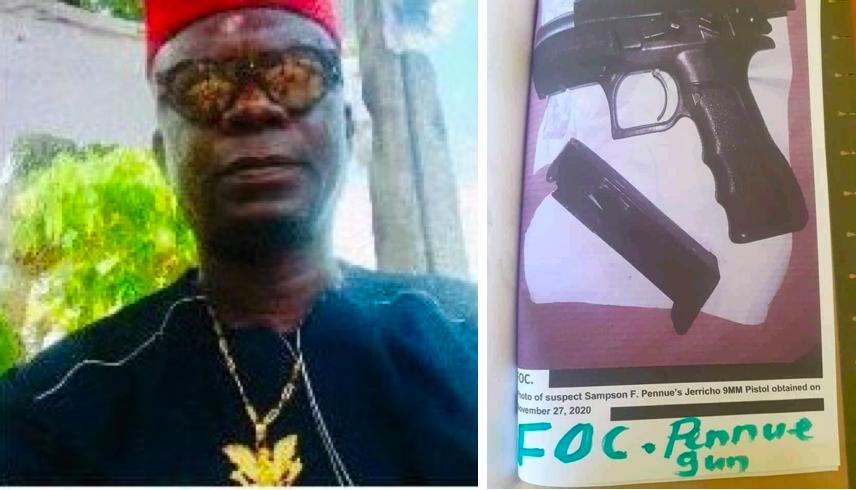
Africa-Press – Liberia. Witnesses from the Liberia National Police who are to testify on behalf of the government in the murder of the Deputy Grand Gedeh County Police Commissioner, Alexander Saye, have backed off believing that the prosecution has already compromised the case.
FrontPageAfrica
gathered from some of the witnesses (names withheld) J. Adolphus Karnuah that they would not testify as long as Cllr. J. Adolphus Karnuah remains the prosecuting lawyer.
Defendant Sampson Pennue has pleaded not guilty to the crime of murder and he is currently enjoying a bail granted him despite being indicted with a capital offense.
How He Got Bailed
Defendant Pennue was surprisingly released on bail despite being indicted for a capital offense on ground that the evidence in the murder case was not very strong.
Interestingly, Associate Justice Joseph Nagbe who is on record for denying Oliver Dillon, the brother of Montserrado County Senator Darius Dillon’s brother a bail on ground that the he was indicted for murder, stated that the lower court was in no error granting bail to Pennue, who is the brother of Grand Gedeh County Senator Zoe Emmanuel Pennue, a member of the ruling Coalition for Democratic Change.
Section 13.1(1)(2) of the Criminal Procedure law of Liberia says a person in custody for the commission of a capital offense shall, before conviction, be entitled as of right to be admitted to bail unless the proof is evident or the presumption great that he is guilty of the offense. On the hearing of an application for admission to bail made before indictment by a person in custody for the commission of a capital offense, the burden of showing that the proof is evident or the presumption great that he is guilty of the offense is on the Republic. After indictment for such an offense, the burden is on the defendant to show that the proof is not evident or the presumption not great. After conviction for a capital offense, no person shall be continued at large on bail or be admitted to bail except in accordance with the provisions of paragraph of this section. Offenses less than capital. Any person charged with the commission of an offense not capital shall be entitled as of right to be admitted to bail.
Comparison with the Dillion Case
In the Dillion case, after the Chamber Justice Nagbe ruled the lower court judge was in error in granting Dillon a bail, the Defense lawyers took an appeal from the Chamber ruling and announced an appeal to the full bench.
The full batch heard the case and ruled that the lower court judge was in error by granting Dillon a bill, thereby, upholding the Chamber ruling. However, the Court said that since Dillion was already on bill, the lower court should resume jurisdiction over the case and if Dillion was in violation of the terms and conditions of the bill, he should be arrested and jail. Dillion did not violate the term of condition of the bill and was always in court until he was acquitted of murder by the court.
However, in the Pennue case, after Sikajipo A. Wollo granted Pennue a bail, Associate Justice Pennue said he was not in error, thereby, sustaining Judge Wollo’s ruling admitting Pennue to bail.
Cllr. Cyrenius Cephus appealed from the Chamber ruling, but did not follow up or perfect his appeal to the full bench. When the case was called and the Defendant was arraigned, he pleaded not guilty to the indictment thereby joining issues with the State. He opted for bench trial.
Judicial pundits believe his request for bench trial is because he knows that the judge who admitted him to bail on grounds that the evidence was not strong for the murder case could acquit him.





